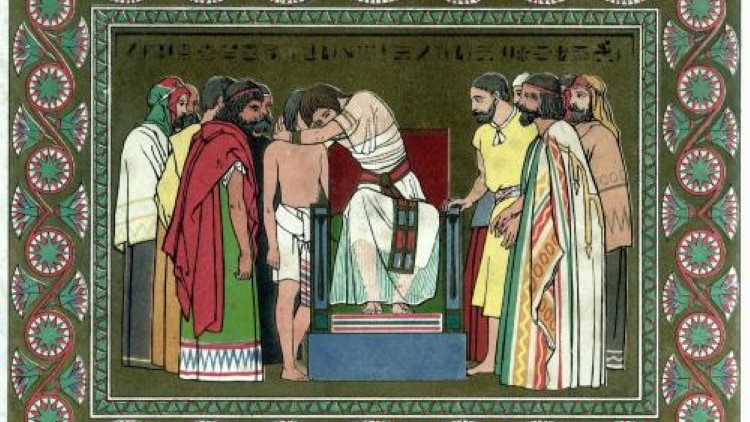
Genesis 50:15-21
Proper 19A
15 RealizingA that their father was dead, Joseph’sB brothers said, “What if Joseph still bears a grudgeC against us and pays us back in fullD for all the wrongE that we didF to him?”
16 So they approachedG Joseph, saying, “Your father gave this instructionH beforeI he died,
17 ‘Say to Joseph: I begJ you, forgiveK, L the crimeM of your brothers and the wrongN they did in harmingO you.’
Now therefore pleaseP forgive the crime of the servantsQ of the GodR of your father.” Joseph weptS when they spokeT to him.
18 Then his brothers also wept,U fell down beforeV him, and said, “WWe are here as your slaves.”
19 But Joseph said to them, “Do not be afraid!X Am I in the placeY of God? 20 Even though you intendedZ to do harm to me, God intended it for good,AA in order to preserveBB a numerousCC people,DD as he is doing today.
21 So have no fear; I myself will provide forEE you and your little ones.”FF In this way he reassuredGG them, speaking kindly to them.HH
Image credit: “Benjamin Returns to Egypt” by Owen Jones from “The History of Joseph and His Brethren,” 1869.
